The Origins of National Interests. Editors: Glenn Chafetz, Michael Spirtas, Benjamin Frankel. London*Portland: Frank Cass, 1999.
См.: Р. Ш-А. Алиев. Внешняя политика Японии, с. 148–164.
Цит. по: Michael С. Desch. Culture Clash. Assessing the Importance of Ideas in Security Studies — International Security, Vol. 23, № 1 (Summer 1998), p. 151
Hans Binnendijk with Alan Henrikson. Back to Bipolarity? — Strategic Forum, Number 161, May 1999. — Internet.
Анализ «Стратегических оценок» за 1996 г. сделан в моей книге «Азиатско-тихоокеанский регион: мифы, иллюзии и реальность». М.: Наука, 1997, с. 220–222.
Strategic Assessment 1997. Flashpoints and Force Structure. Wash., NDU, 1997. — Internet.
Strategic Assessment 1998. Engaging Power for Peace. Wash., NDU, March 1998. — Internet.
Strategic Assessment 1999. Priorities for a Turbulent World. Wash., NDU, 1999. — Internet.
Фактически этот документ является уточнением и дополнением к пентагоновскому «Обзору по национальной обороне» (the Repon of Quadrennial Defense Review /QDR/).
P. Samuel Huntington. The Clash of Civilizations and the Remaking of World Order. London… Touchstone Books, 1998.
С Милошевичем, правда, получилась промашка.
Zbigniew Brzezinski. America in the World Today. — In Complexity, global Politics, and National Security. Ed by David S. Alberts and Thomas J. Czerwinski. Wash., DC: National Defense University, 1997. — Internet.
Zbigniew Brzezinski. Living With Russia. — The National Interest. № 61, Fall 2000. — Internet.
Stephen Sestanovich. Where Does Russia Belong. — The National Interest. 62, Winter 2000/2001. — Internet.
The New Russian Foreign Policy. Edited by Michael Mandelbaum. COUNCIL ON FOREIGN RELATIONS, NY, 1998. — Internet.
Strobe Talbott. Russia: Its Current Troubles and Its On-Going Transformation (Testimony before the Senate Foreign Relations Committee). Washington, DC, September 23, 1999. — Internet.
Подр. на эту тему см.: Strobe Talbott. Dealing with Russia in a time of troubles. — The Economist. November 21st, 1998, p. 50–52.
R. Craig Nation and Michael McFaul. THE UNITED STATES AND RUSSIA INTO THE 21ST CENTURY. Strategic Studies Institute. October 1, 1997, p. 49.
Любопытно, что Макфол всю международную систему рассматривает через призму идеологии «ядра», не замечая, что внутри этой международной системы существуют и другие идеологии, например социалистическая идеология Китая.
Iden Lecture by Lee Hamilton. Changes in American Foreign Policy Over the Past 30 Years. — Institute for the Study of Diplomacy, November 18, 1998. — Internet.
Kay Bailey Hutchison. A Foreign Policy Vision for the Next American Century. — Heritage Lectures, 639, July 9, 1999.
U. S. National Security: Beyond the Cold War. Strategic Studies Institute, 1997. — Internet.
Robert F. Ellsworth. American National Security in the Early 21st Century. In U. S. National Security: Beyond the Cold War.
Ronald Steel. The New Meaning of Security. In U. S. National Security: Beyond the Cold War, p. 40.
Напомню, что основателями этой теории были Г. Моргентау, А. Вольферс и др. Тем не менее Стил не совсем прав: в годы холодной войны парадигмы менялись: в период правления Л. Джонсона и Р. Рейгана, например, доминировала школа «идеалистов».
Sources of Conflict in the 21st Century. Regional Futures and U. S. Strategy. /Ed by Zaimay Khalilzad, lan O. Lesser. Rand, 1998. — Internet.
Chapter two. Zaimay Khalilzad, David Shlapak with Ann Flanagan. Overview of the Future Securuty Environment. In: Sources of Conflict in the 21st Century.
John Van Oudenaren. Chapter Five. Sources of Conflict in Europe and the Former Soviet Union.
Issues'98: The Candidate's Briefing Book. Edited by Stuart M. Butler and Kim R. Holmes. Heritage Foundation, 1998, p. 364.
Dan Quayle. The Duty to Lead: America's National Security Imperative. — Heritage Lectures. № 630, January 21, 1999.
The State of Russian Foreign Policy and U. S. Policy Toward Russia. — «Heritage Lectures», 607, April 6, 1998. — Internet.
See: Andrei V. Kozyrev, «NATO Is Not Our Enemy», Newsweek, February 10, 1997, p. 31.
См.: Р. Ш.-А. Алиев. Внешняя политика Японии, с. 23–35.
Ariel Cohen. A NEW PARADIGM FOR U. S. — RUSSIA RELATIONS: FACING THE POST-COLD WAR REALITY. — The Heritage Foundation. Backgrounder No. 1105 March 6, 1997. — Internet.
Ariel Cohen. The «Primakov Doctrine@: Russia's Zero-Sum Game with the United States. The Heritage Foundation. FYI No. 167. December 15, 1997. — Internet.
ISSUES 2000. The Candidate's Briefing Book. Edited by Stuart M. Butler and Kirn R. Holmes. Wash. D. C., The Heritage Foundation, 2000. — Internet.
Ariel Cohen. Summit Rhetoric Aside, Putin's New Cabinet Makes Russian Reforms Less Likely. — Executive Memorandum. June 1, 2000.
David M. Lampton, Gregory C. May. A Big Power Agenda for East Asia: America, China, and Japan. The Nixon Center, 2000, p. iii. — Internet.
What Is to Be Undone? A Russia Policy Agenda FOR THE New Administration. The Nixon Center, February 2001, p. 3, 7.
Condoleezza Rice. Compaign 2000: Promoting the National Interests. — Foreign Affairs. January/February 2001. — Internet.
A National Strategy For a New Century. The White House, December 1999. — Internet.
United States Strategic Plan for International Affairs. First Revision — February 1999. В следующем году появился очередной Стратегический план госдепартамента (Strategic Plan. September 2000), но с содержательной точки зрения он почти ничем не отличается от предыдущего, за исключением некоторых новых моментов организационного характера.
Читать дальше
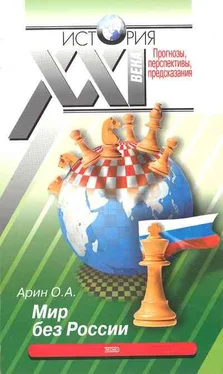
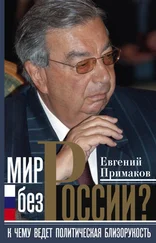
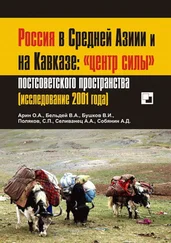
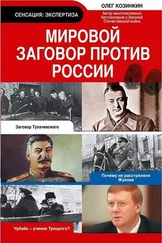


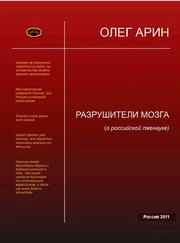

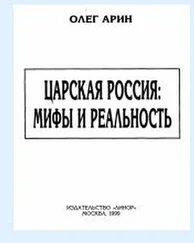
![Олег Арин - О любви, семье и государстве [Философско-социологический очерк]](/books/422193/oleg-arin-o-lyubvi-seme-i-gosudarstve-filosofsko-sociologicheskij-ocherk-thumb.webp)


